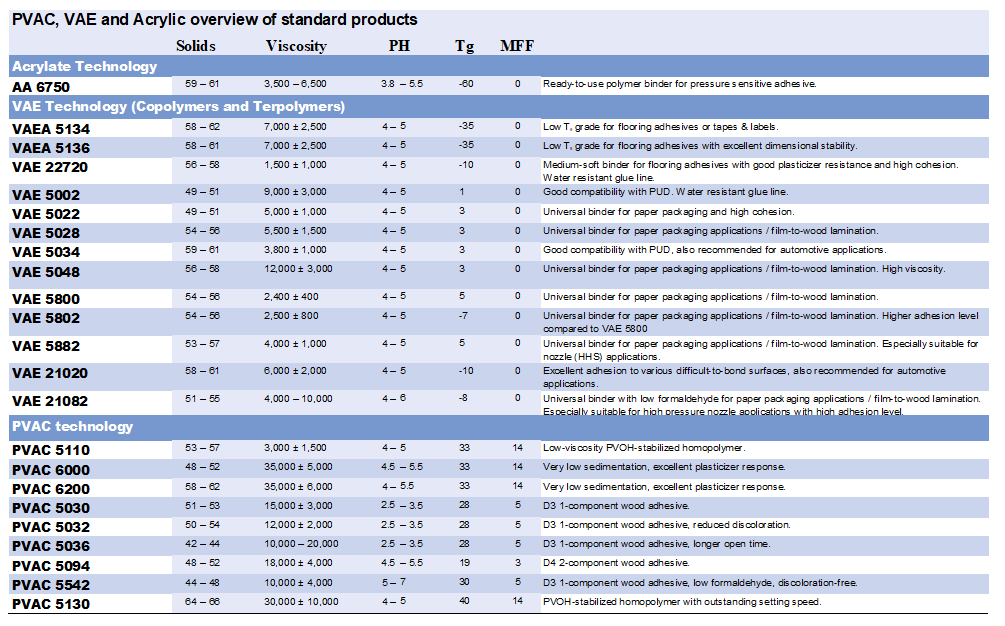Styrene-acrylic polymers are a class of copolymers that exhibit both thermoplastic and elastomeric properties. Acrylonitrile styrene acrylate (ASA) is an example of an amorphous thermoplastic developed as an alternative to acrylonitrile butadiene styrene (ABS), but with improved weather resistance. Styrene-acrylonitrile resin (SAN) is a copolymer plastic consisting of styrene and acrylonitrile, which is widely used in place of polystyrene owing to its greater thermal resistance.
Improve the recycleability of Styrene Acrylic polymers
VAE might be an alternative, being thermoplastic and water solluble. VAE is already used in many applications that support recycleability and sustainability
- As melt strengthener in PLA (biobased plastics)(also used for strengthening and flexibilization of PLA films.
- As adhesion promotor for cementious adhesives
- As binder for starch and bio-fibre products
- As soluble binder for carpets, enable the separation from fibres from the backing material
Furthermore VAE dispersion polymer emit very low VOC’s. Many products made with Vinyl-Acete-Ethylene polymers, like interior wall coatings and carpets, meet the LOW VOC standards in the industry. While VAE does not emit for examply styrene gasses.

